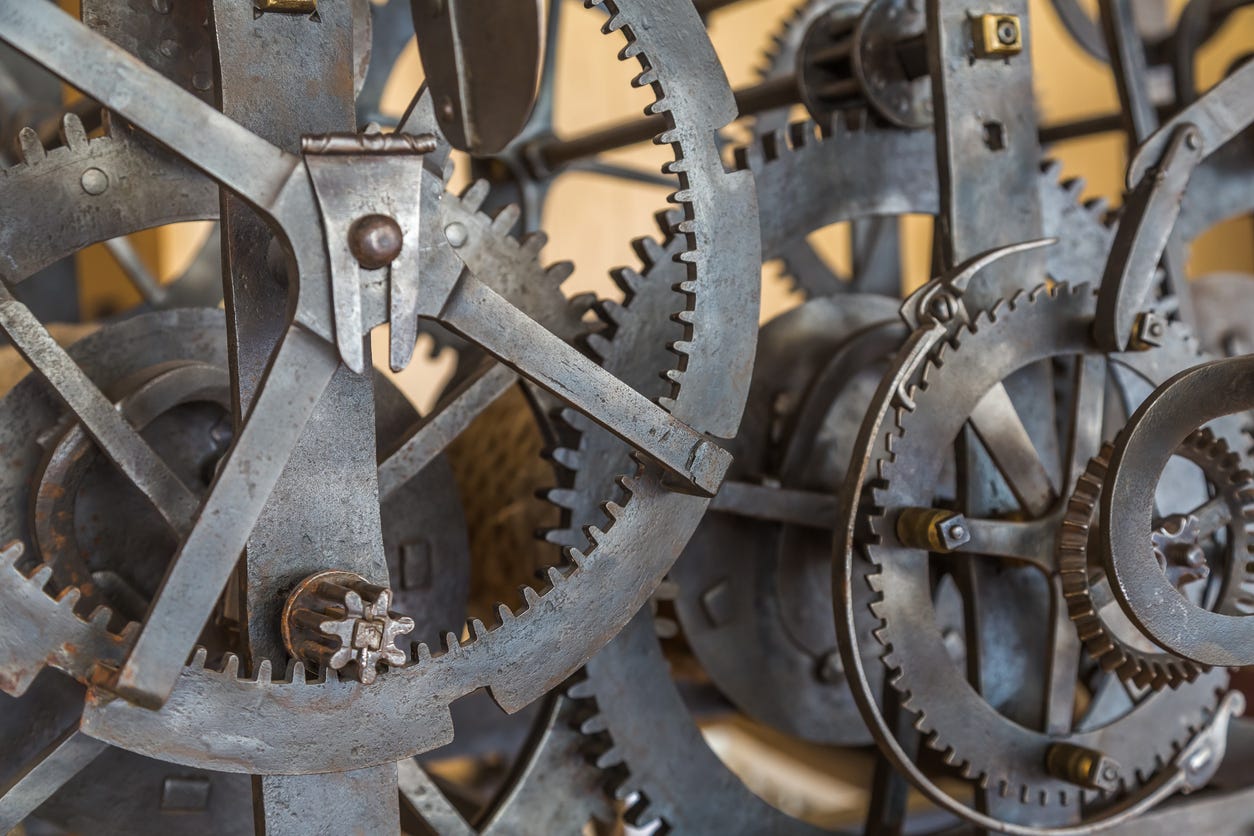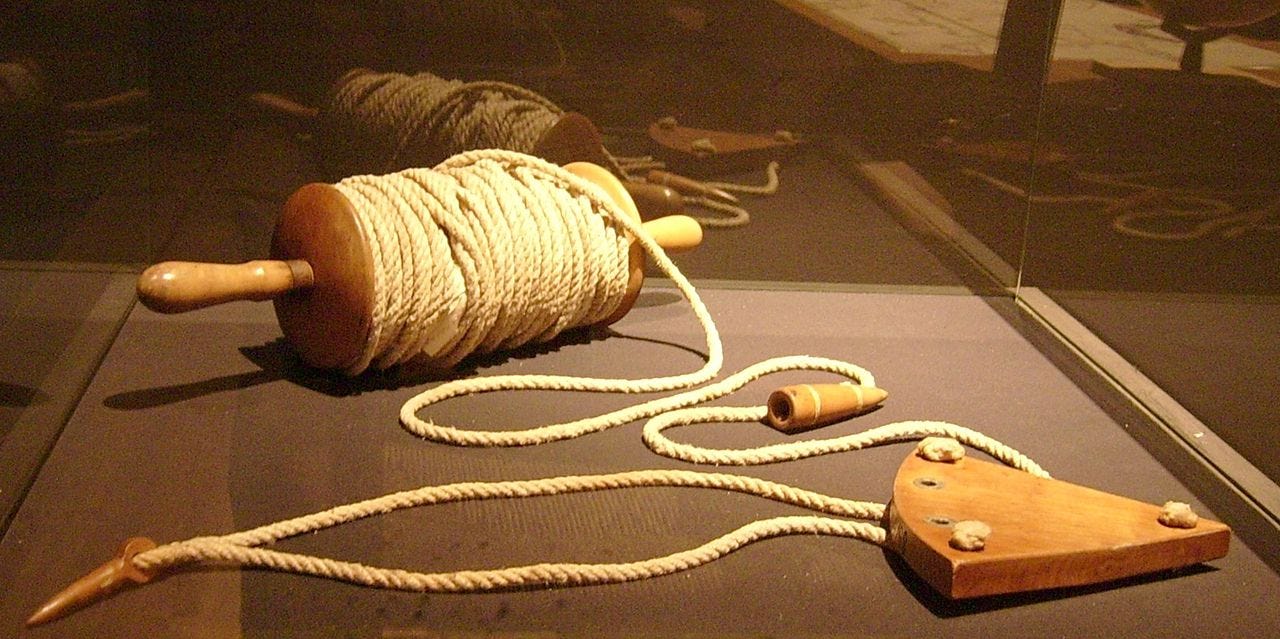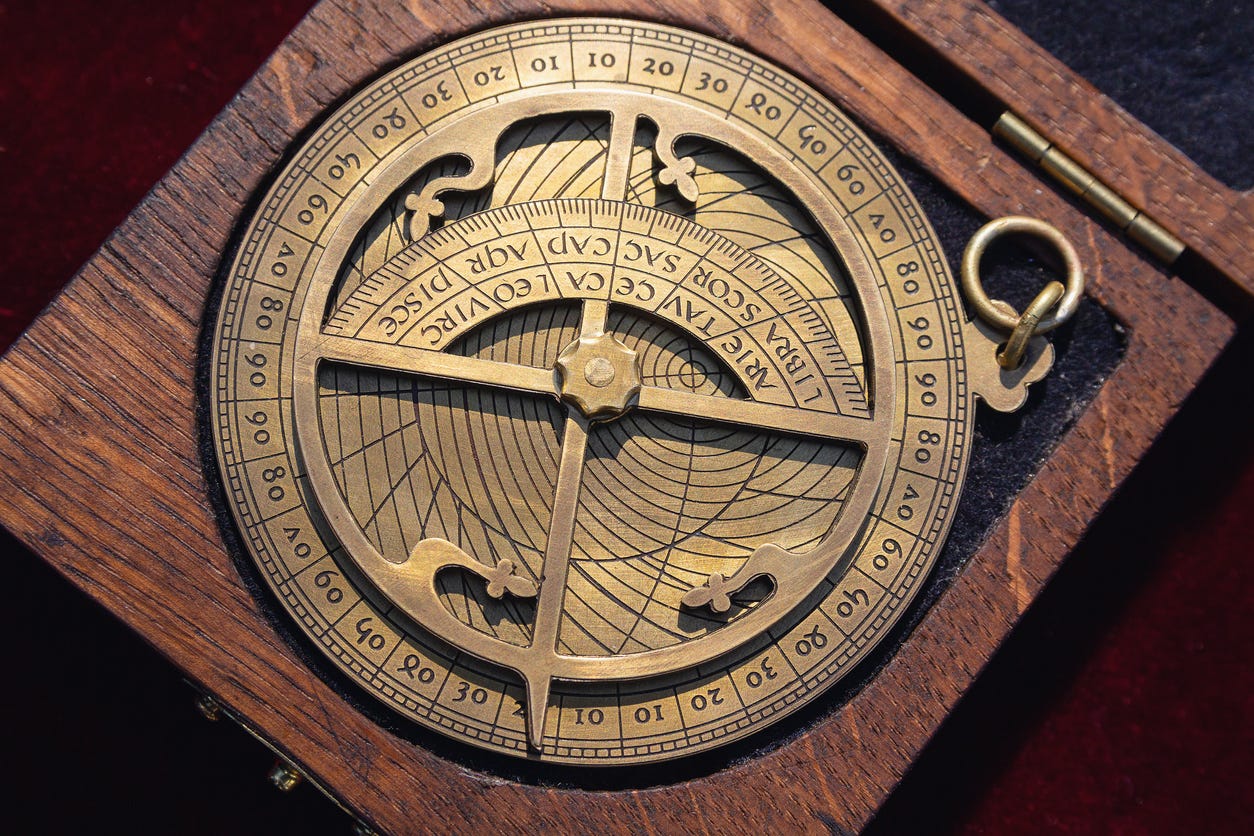Why Invent a Mechanical Clock?
What benefits did medieval Europe derive from inventing the mechanical clock?
Imagine yourself a ruler of some medieval kingdom or empire. What benefits would accrue to your kingdom from developing the art of clockmaking? After all, you have sundials and sandglass already. Something like a musket, plow, or wheels have more obvious advantages. With muskets, you can boss around your neighbors and take their land. Plows let your people produce more food, giving you a surplus to feed a bigger army. Wheels let you move stuff around your kingdom.
In comparison, a mechanical clock seems like a frivolous doodad with no real practical application. Indeed, when Europeans first presented mechanical clocks to the Chinese, they were viewed as amusing toys.
In this story, I will focus on the time period around 1600s because that is when China and Europe began interacting with each other extensively. At that time, it became apparent that Europe was starting to pull ahead of China. The question is whether clocks were in any way a contributing factor to that. I would like to discuss both direct and indirect effects from European clock making:
Direct effects—In what areas of society could clocks provide a benefit?
Indirect effects—Did the practice of making clocks encourage or spur the development of other useful things or practices?
Direct Advantages of Clockmaking
Accurate time keeping is of significant benefit to astronomy. Astronomy is an important science to the development of celestial navigation. Celestial navigation is navigation by celestial objects. By celestial objects we mean objects in the sky such as stars, the sun, the moon, and the planets. Before GPS satellites, celestial navigation was the most important method of navigation, especially when traveling far.
Another essential method of navigation is dead reckoning. Dead reckoning is based on the idea that you can calculate distance traveled if you know your velocity and time traveled at that velocity.
A journey could be described as traveling between multiple waypoints. Travel between two waypoints is called a leg. Speed along one leg should remain constant, so we can calculate how far we traveled. Computing our final position is thus a matter of adding up legs.
Both celestial navigation and dead reckoning benefit from accurate measurements of time. Measuring speed is done by calculating distance traveled within a time interval. If you cannot measure that time interval accurately, then your speed calculation will be wrong and your position will get wrong.
All dead reckoning calculations will have errors, which will accumulate the further you travel. That is why you need to get a position fix with another method after longer travel. While celestial navigation will also have inaccuracies, these don't grow with the distance traveled.
I will not explain celestial navigation in detail here, but try to give you an intuition about why time matters in celestial navigation. Imagine standing inside a large black sphere with white dots representing stars and planets. If you rotate on the spot, you will see different stars and planets. The starts in front of you will be different from the ones behind you. The Earth is constantly rotating which means that at nighttime stars and planets will pass across the night sky. To complicate matters, the Earth orbits the sun, which means the time of the year also affects what stars you will see at night sky. Assuming you are always observing the night sky from the same location on Earth, you will notice that the position of each star changes with the seasons as well as with the time of night.
The position of the stars at any given time is unique for every location on Earth. A person in London will not see the Big Dipper or Orion at the same location at night sky as a person in Cairo or Rome at the same date and time at night.
Hence, there must be a way to determine your geographic location by looking at the night sky. Recording the position of starts for every date and every over for every location on the planet is impractical. However, an astronomer can record the positions of important stars in a specific location, say London, throughout the year. London can be used as a reference point by a navigator.
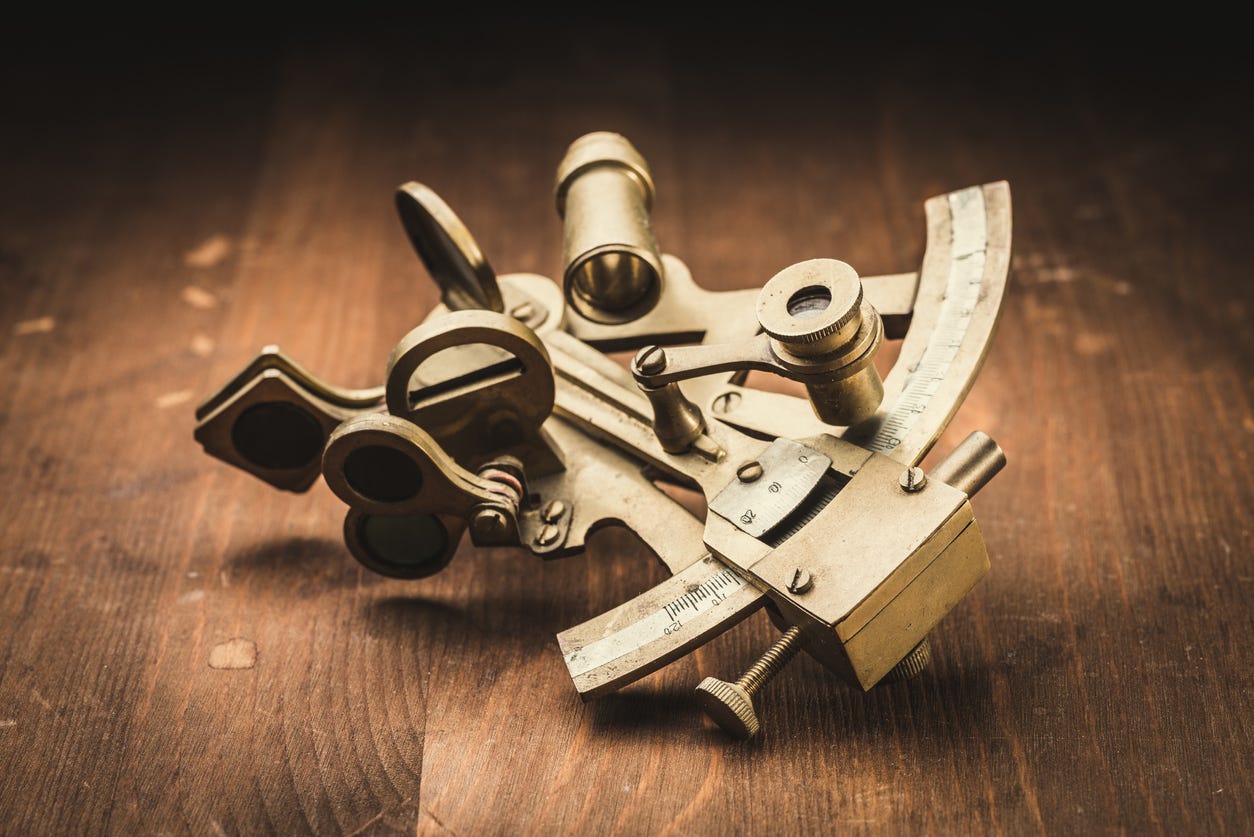
A navigator can look at the night sky and measure the positions of different stars. He will then find that, unless he is in London, the stars will not have the same position as recorded by the London astronomer. However, using mathematics, he can combine this information to calculate where in the world he must be located. After Johannes Kepler discovered the laws of planetary motion in 1609 it became possible for astronomers to calculate where different planets would be positioned on the night sky on different dates. An astronomer could create tables with these positions at different dates, which a navigator at sea could look at. Both navigators and astronomers need ways of measuring the positions of stars and planets.
One can use a sextant or astrolabe for that purpose. These are devices for measuring angles between distance objects. Another approach is to use a time measuring device. The Earth rotates 15 degrees every hour. Hence, by measuring the time from when you see a star on the horizon at night until it reaches its highest point you can figure out how many degrees there are to the highest point of the star.
Before mechanical clocks, humans used a wide variety of methods to measure time. On ships, it was popular with sandglass. Galileo Galilei measured the speed of an object rolling down an incline using his pulse. During daytime, a sundial can be used. In fact, early mechanical clocks were so inaccurate that they had to be reset regularly using a sundial. If sundials are so much better than, why not use them instead? For obvious reasons, they will not work at night, when you have the chance to observe stars and planets. Likewise, a cloudy day will render them useless.
Instead, the combination of a sundial and a mechanical clock is more optimal, as you can adjust your mechanical clock whenever weather conditions allow you to use one. Dutch scientist Christiaan Huygensrevolutionized time keeping in 1656 by the inventions of the Pendulum clock. It caused a dramatic increase in the accuracy of mechanical clocks. These clocks did not however not directly aid navigators as they worked poorly at sea. Despite great efforts, an accurate clock which would work at sea did not become available until 1761 with the marine chronometer, invented by carpenter and clockmaker John Harris.
Why Does Navigation Matter?
So, why would our hypothetical king want his civilization to master navigation? If he thinks being able to grab land overseas and make tons of cash from trading spices, silk, porcelain, and other luxury articles, then mastering nautical navigation would be a really useful thing. It gives you the upper-hand against those you may seek to invade to grab land from. You can get to them, but they have no way of getting to you.
Even when outgunned and outnumbered, European ships often did not need to fear their opponents abroad. They could sail against the wind and were able to escape into the open ocean. Enemies would have to follow at their peril.
With supremacy in navigation, naval artillery and rigging, European powers ended up not only shipping goods between Europe and Asia but also setup extensive trading networks within Asia and to South America. Spice was shipped from Indonesia to India, silver and copper were transported from Japan to China, while silk was shipped from China to Japan. The Spanish brought in silver to the Philippines, where it would later end up in China through further trades. Cotton fabrics from India were brought by Europeans to all over Asia. European powers were amassing large fortunes from this inter-Asian trade.
There were not only goods being moved around, but also people. European trading nations eagerly setup forts, towns, and plantations all over Asia which needed people. Many South Eastern Asian countries were not very developed and thus large number of Chinese people got imported by Europeans to establish commercial centers and plantations.
Indirect Advantages of Clockmaking
Clockmaking had a profound influence on how Europeans thought about the world. Astronomer Johannes Kepler remarked:
The universe is not similar to a divine living being, but similar to a clock.
Contemporary Anglo-Irish physicist Robert Boyle wrote that the universe is "a great piece of clockwork." The idea that God was a great clockmakerevolved in the minds of the European intellectual elite. This perspective was an important development, as it opened up the idea that the universe was something that could be studied and explained.
The other aspect of clockmaking is the skills and abilities it evolved. Europe in the Renaissance and later did not put people into boxes the same way we do today. Remember, Leonardo da Vinci did theatre effects, painted, designed cranes and war machines. Likewise, clockmakers were usually among the most learned in their towns. Unlike other craftsmen, clockmakers were far more likely to read and write extensively. Many were highly trained in mathematics. Working with fine mechanics was a skill used in many areas. Many early clockmakers were also gunsmiths. Later, it was more common that they also built locks. As watches got developed, many had experience with making jewelry.
Clockmaking was also closely related to Automatons. To quote wikipedia:
An automaton is a relatively self-operating machine, or control mechanism designed to automatically follow a sequence of operations, or respond to predetermined instructions.
Combining clocks with automatons was common in medieval times. When the hour struck, many city clocks would have figures move in and out, making various movements. A Swiss cuckoo clock as elements of an automaton, as a bird will move out when the clock strikes the hour. While a lot of this elaborate mechanics had no practical application, it helped develop advanced mechanical skills. It is not without reason that many machines during the industrial revolution got made by clockmakers.
Consider the water frame, which was a water wheel powered machine for spinning thread invented by English clockmaker John Kay, while working for infamous industrialist Richard Arkwright.
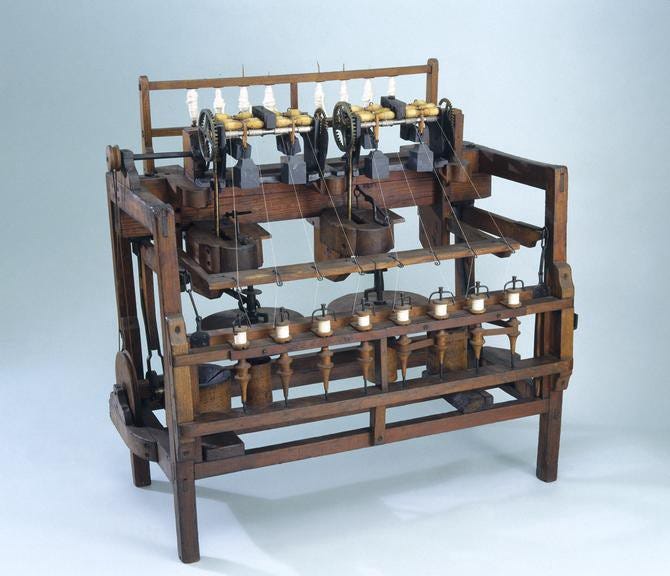
Clockmakers made all sorts of instruments. And this also led many of them to dabble in science and mathematics as well. Simply developing and improving clocks requires understanding mechanics and physics.
To conclude, a clock is not merely an instrument for you to make sure you get to work or appointments in time. The mechanical clocks helped revolutionize astronomy, navigation, science, and engineering.


